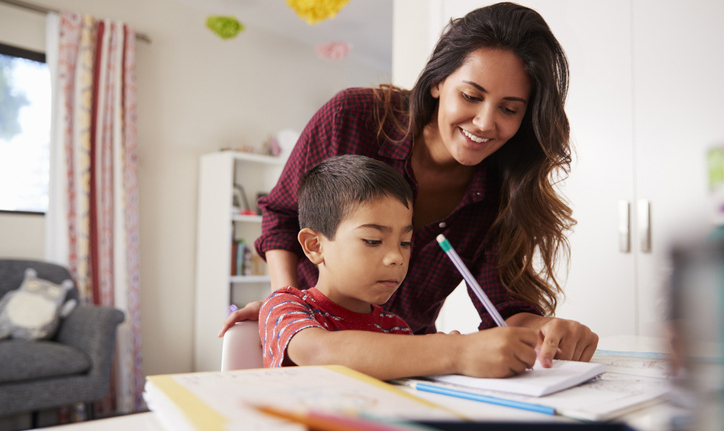
Learning loss is a fairly common phenomenon with children of all ages. While summer learning loss is a much more commonly known term in parents’ and teachers’ circles, there could be other types of learning losses as well. For example, the whole new virtual mode of learning and lack of discipline while not having to attend regular school during the pandemic is one contributing factor. This pandemic-related learning loss, also popularly called the quarantine slide in children is at an alarming level already. And you are not alone if you are worried about it.
The staggering stats
According to savethechildren.org, across America, 16 million students lack adequate internet or devices to sustain effective distance learning at home. These catastrophic learning losses mean high school drop-out rates are likely to increase, resulting in up to 1 million more dropouts. The effects of learning loss may not be temporary unless measures are taken to combat it.
Does this learning loss have any long-term effects?
McKinsey’sanalysis shows that the impact of the pandemic on K–12 student learning was significant, leaving students on average five months behind in mathematics and four months behind in reading by the end of the school year. The pandemic widened the preexisting opportunity and achievement gaps and it goes beyond just academic learning loss.

Also consider this, back in September 2020, economists estimated COVID-related learning loss shrinks the incomes of affected children by 3% over their lifetimes. Clearly, parents need to actively take steps to help children combat this learning loss. The reasons could be varied – the pandemic, extended leaves due to any personal reasons, or general lack of vigor at school during virtual classes. Whatever the reason, the learning loss and its long-term effects are going to linger unless you decide to COMBAT it right away.
What can you do as a parent to help your child combat the learning loss?
As a parent, you can actively help your child overcome and combat any learning loss, whatsoever! Yes, that’s the good news and the better news is that it is easy to do so. Engaging your child in activities that prevent learning loss in the first place is a great way to start. For example, host reading and creative writing contests for your child and their friends. Take them on educational trips during holidays or watch educational documentaries if you are stuck at home. Enroll your child in hobby and language classes. Getting them a tutor to ensure the learning discipline is maintained regardless of the school’s cadence is a great idea too. From math to piano and art, you can find a tutor for everything at Talentnook!
Also read: 7 Ways to help your child adjust to being at school after months of lockdown
We’ll talk about that later in this article but first, here are a few things you can do to combat and prevent learning loss due to any reason:
1. Engage your child in practical activities & DIYs
There are a zillion opportunities to engage your child in practical and educational activities. Instead of letting your child while away more time on the screen(s), make sure they get their hands dirty! This still and will always remain the best of learning new skills and concepts. For a starter, you can simply order DIY kits from Amazon that are all about teaching basic scientific concepts. These DIY science and art projects not only sharpen creative thinking abilities and skills but also keep your child engaged for longer.
We particularly love these 3 that you’ll find handy for your child depending on their age:
- STEM (science, tech, engineering, math) Robotics Kit for children of ages 8-14 years
- National Geographic Stunning Science Kit (15 experiments, another interesting and handy STEM kit for chidlren)
- Craft-tastic String Art Kit – for ages 10 and above
2. Set aside some time to review key concepts
Set aside some daily time to review key concepts in a subject (or subjects) that your child has faced (or is likely to face) a learning loss. For example, if your child generally struggles with math the most, they will most likely have maximum learning loss in math. Setting aside 30 minutes every evening or night to review key concepts can help your child immensely. A key factor contributing to learning loss is simply the break in routine or a long period of inactivity in a subject or a stream. You can easily break this spiral by taking an active part in reviewing that very subject or skill daily with your child. As a bonus, it will also strengthen your bond with your child greatly!
3. Encourage your child to explore non-academic interests
It is important to note that learning loss is not just academic or skill level. It could also mean a general decline or lethargy in learning and grasping. To ensure that your child remains inquisitive and interested in the world of learning, set them free too! We mean, that you must allow them to pursue non-academic interests to the very hilt.

For example, if your child is super interested in dinosaurs, let paleontology be their hobby. And if computers interest them, enrolling them in a coding class early on can do wonders! Whatever it is, pursuing non-academic interests meticulously will only boost your child’s learning speed and interest in general in academics too.
4. Enroll your child in a reading program
Learning loss often manifests itself as a loss in reading skills. In fact, it is said that it is the most common form of learning loss in children due to the pandemic. An easy way to combat it is to enroll your child in a reading program. This has many benefits. For example,
How can Talentnook help combat the learning loss in an expedited way?
At Talentnook we believe that every child has genius potential that can be unlocked with a little help. Our Reading Program is designed to help children of all ages based on their current levels of reading. A free assessment could be a great start if you are unsure of the same. Just click here and request a free assessment for your child today. A customized program designed to cater to your child’s learning needs is the first critical step in helping them combat learning loss.
Wait, but what’s more?
And not just reading, if your child needs help with math, science, languages, etc too, help is right around the corner! We connect thousands of neighborhood tutors with students for afterschool lessons in math, science, piano, art, French, Spanish, you name it! You can request free demo lessons before signing up a tutor, browse through several profiles and shortlist based on your specific budget and expectations. A private tutor can literally handhold your child and help them combat learning loss faster than anyone else.
This is because of several reasons. One, a private tutor brings in the discipline necessary to combat learning loss. Two, they are experienced professionals who can deliver on very specific learning goals. And, three, a private tutor is often more of a partner in learning than a teacher. It means that your child will be able to open up more and discuss their problem areas better with them.
Confused between online study pods to online one-on-one lessons to offline tutoring? At Talentnook, there is every format your child can possibly love. Just log on to Talentnook.com and get your child an upstart today!